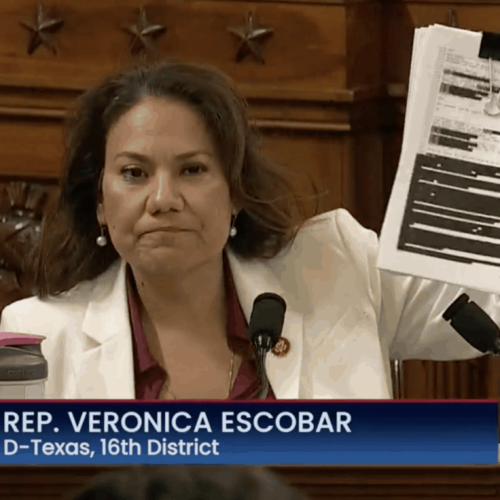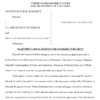Introduction
President Donald Trump’s decision to block military aid to Ukraine last summer roiled his government. Initially it was met with disbelief and then it provoked passionate dissent, stirring concerns — especially at the Pentagon — that the decision was not only damaging to national security but also illegal because it violated a law requiring the aid to go forward.
For two months, officials at the Defense and State departments simmered in private. They hatched plans to change Trump’s mind, arranging meetings, writing talking points and issuing warnings that a deadline for spending the funds was drawing near. But Trump refused appeals from everyone until Congress launched a probe into a whistleblower’s complaint about the aid holdup.
It was, in short, only the likelihood that his secret decision would be forced from the shadows that caused American security assistance to flow again to Ukraine. And the resulting congressional investigation made it clear that Trump had discussed using the aid as leverage to get Ukraine’s help for his 2020 re-election.
Transparency was a key issue during the debate over Trump’s impeachment in December and January. The administration argued that its internal deliberations on the issue were legitimately confidential, while Democrats and other critics alleged that the secrecy was only meant to hide the improper, and illegal, political roots of the aid holdup.
The Center for Public Integrity — a nonpartisan, nonprofit investigative newsroom — has tried to pierce the secrecy surrounding the government’s deliberations. It filed a Freedom of Information Act requests for relevant documents and sued the Trump administration when it refused to release them.
So far, Public Integrity has only had partial success. But its fight is not over — even though the Senate on Wednesday will almost assuredly acquit Trump on two articles of impeachment without senators having themselves read and considered all the documents Public Integrity has fought to obtain. (Update, 4:45 p.m. Feb. 5, 2020: As expected, the U.S. Senate acquitted Trump.)

Here’s how matters stand now: In November, federal district court Judge Colleen Kollar-Kotelly — acting on FOIA requests made by Public Integrity in September — ordered the White House and the Pentagon to turn over a trove of emails documenting the anguish set off by Trump’s decision and the internal clamor about its apparent illegality.
They would have been the first documents to emerge from inside the government that reflected what top officials were saying to one another about Trump’s motives and the problematic consequences of his decision. Congressional efforts to obtain the same documents had been rebuffed by the administration.
Most of the contents of the emails the Department of Justice turned over in December were blacked out, however, hiding many of the details — but not the scope — of the government’s discussion about how to implement Trump’s aid holdup.
An index of the withheld material, disclosed by the Justice Department on Jan. 31 under an additional court order, makes clear that the wording of a series of temporary orders blocking the expenditures was discussed in at least 27 email communications involving the office of the Defense Department’s top budget officer and general counsel and officials at the White House’s Office of Management and Budget (OMB), including its politically-appointed general counsel.
From mid-August onward, the Pentagon’s top budget officer was warning explicitly that the holdup would violate the Impoundment Act unless Congress was informed about it and gave its approval, according to excerpts of the redacted material published by the website Just Security on Jan. 2. But no notice was given, and secrecy prevailed.
In a December statement, OMB’s general counsel said the Pentagon’s lawyer had never provided such a warning. But Kathleen Clark, a University of Washington law professor specializing in professional ethics, wrote in Just Security on Jan. 30 that this “appears to be misleading, if not an outright lie” because the warnings were clearly expressed even if they came from the budget office, not the counsel.
The detailed contents of two dozen of the documents Public Integrity obtained were specifically withheld under a claim — filed by Assistant Attorney General Joseph H. Hunt, a former chief of staff to Attorney General Jeff Sessions — of presidential privilege, stemming from the involvement of Trump or his close advisers in the matters they discuss.
Who We Are
The Center for Public Integrity is an independent, investigative newsroom that exposes betrayals of the public trust by powerful interests.
The presidential communications privilege, Hunt’s court filing states, covers a broad swath of information “solicited or received by the President” or his top aides about the Ukraine aid, including Robert Blair, a special assistant to the White House chief of staff. Blair was the official who directed the Office of Management and Budget on two separate occasions in late June and early July to hold up the aid, at Trump’s request, and he refused a demand by House Democrats that he testify in their hearings about the decision.
Hunt’s filing said the Justice Department’s decision about withholding this material was made in conjunction with the White House Counsel’s Office, whose director also helped oversee Trump’s legal defense during the Senate’s impeachment trial.
Public Integrity plans to contest Hunt’s claim in a pleading scheduled to be filed with the court on Feb. 14, with a decision by the judge anticipated sometime after March 1. Its lawyers will say that under FOIA, the public is entitled to know in detail how the government was struggling to carry out a presidential order that many officials and experts felt violated the law.
The Government Accountability Office, for example, said on Jan. 16 the holdup was illegal because it violated the 1974 Impoundment Control Act, passed by Congress to rein in president Richard Nixon. Courts have generally ruled that statutory exemptions to the disclosures required by FOIA cannot be used to shield decision-making about illegal actions by the government.
As the U.S. Court of Appeals for the District of Columbia declared in 1983, FOIA is meant “to give citizens access to the information on the basis of which government agencies make their decisions, thereby equipping the populace to evaluate and criticize those decisions.”
Without seeing exactly what officials said, the public would be denied that opportunity.



Join the conversation
Show Comments